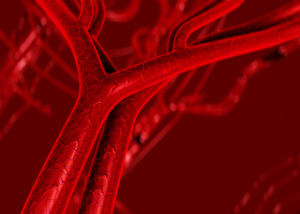Swedish Scientists Create Vaccine for Narrowed Arteries
by
Brendon Nafziger, DOTmed News Associate Editor | May 13, 2010

A vaccine for heart disease?
Scientists in Sweden immunized mice against the life-threatening narrowing of blood vessels by injecting them with a peptide to prevent immune cells from recognizing "bad" cholesterol.
The results appeared May 3 in the Journal of Experimental Medicine.
The treatment reduced so-called hardening of the arteries, or atherosclerosis, by 65 percent, according to the paper. Equally important, the scientists at the Karolinska Institute in Stockholm seem to have overturned earlier beliefs about the mechanism of the disease.
"BAD" CHOLESTEROL
In atherosclerosis, fatty deposits build up on blood vessel walls, causing them to become chronically inflamed. Because of the inflammation, the arteries narrow, which can restrict oxygen-rich blood supply to the heart, making it eventually weaken and fail.
Atherosclerosis is a leading risk factor in heart disease, which causes one in every four deaths in the United States, according to the Centers for Disease Control.
Earlier research had suggested oxidation of the low-density liproprotein, or "bad," cholesterol building up on the artery wall triggered the immune system reaction.
To see if that was the case, in the study, the scientists injected already oxidized LDL into mice (the mice were genetically modified so they could respond to human LDL).
But the researchers found the T cells, a class of immune cells the researchers said orchestrate the attack on LDL, actually ignored the oxidized LDL, preferring instead to go after the non-oxidized, native lipoprotein.
This has surprising implications.
"Our studies show that oxidation is not involved when the immune system reacts to the 'bad cholesterol' LDL. Therefore, antioxidants are unlikely to prevent immune inflammation and atherosclerosis in our blood vessels," Goran Hansson, lead author of the study and a medical researcher at Karolinska, told DOTmed News by email.
What did work was blocking T cell recognition of the LDL. For this part of the study, the researchers took mice with high LDL cholesterol levels, and immunized them with a peptide that made antibodies which prevented the T cells from recognizing LDL. Researchers found treating the mice with the "vaccine" reduced atherosclerosis by more than half, according to the study.
When asked if it would work for humans, Hansson said they first need to fully characterize the immune response to LDL in people.
